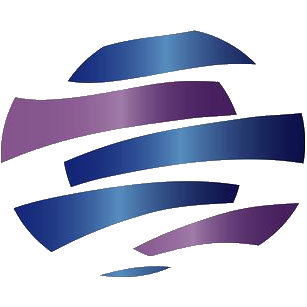| An SI Board Since August 2012 |
| Posts |
SubjectMarks |
Bans |
Symbol |
| 0 |
0 |
0
|
ADMD |
| Emcee:
Geney
|
Type:
Moderated
|
|
seekingalpha.com
Advanced Medical Isotope Corporation ( ADMD.OB) is a growing and promising radiotherapy medical device company. Unlike many of its peers that are focused on a single drug or treatment, the company is looking at two separate areas in which to develop its long-term core business -- radiotherapy and radioisotope supply for the medical field. The company is already an established player in the business of medical isotopes, which are used in imaging diagnostics and radiotherapy treatment for the treatment of cancer tumors.
The company has relationships with several customers -- the most recentof which is Kennewick General Hospital of Kennewick, Washington, for the supply of radioisotopes used in positron emission tomography (PET), as well as for other medical isotopes for diagnostic imaging and therapeutic applications. Positron emission tomography (PET) has rapidly become a preferred imaging technique. A PET scanner uses pre-implanted radiation emitted from a patient to develop three dimensional images that provide greater clarity than magnetic resonance imaging (MRI) alone. When used in conjunction with computed tomography (CT), the combination of the exceptionally-detailed images can be very helpful in diagnosing various types of diseases, such as cancer and cardiac disorders.
The company believes that it has entered a major market by tackling the isotope business. The market was valued at $3.2 billion in 2010, and is expected to reach about $5 billion by 2015. Over 10,000 hospitals globally use medical isotopes, with about 90% being utilized for diagnostics. The most commonly used medical isotopes are molybdenum-99 and its derivative, technetium-99m.
The U.S. alone uses these isotopes in over 50,000 diagnostic procedures each day. Most of the Mo-99 is produced by aging nuclear reactors nearing the end of their useful lives. When the NRU reactor at Chalk River, Canada shuts down in 2015, half the global production capacity will be lost. There are no current plans to replace the reactor. Advanced Medical Isotope's solution to the looming shortage is to create a reliable supplier for which it has entered into an agreement with the existing Missouri University Research Reactor. The company expects to be in a position to supply up to 50% of the U.S. demand for that particular isotope.
The second promising area of future growth for ADMD is the injectable radiogel high-dose radiation therapy, for which the company has obtained exclusive licenses to eight patents from Battelle, one of the leading independent research and development companies in the world. The therapy is a type of brachytherapy -- a radiotherapy treatment procedure in which therapeutic dosages of radiation are administered by the temporary or permanent implantation of a radiation source into a targeted cancer tumor. This is expected to be a low-cost localized treatment, which involves injecting a water-based polymer gel containing yttrium-90 microspheres directly into the tumor. Y-90 is a widely used isotope commonly used in many radiotherapy procedures for cancer treatment. Body heat causes the polymer to form a lattice, which traps the Y-90 and does not allow the radiation to travel outside the targeted tumor. As a result, little healthy body tissue is exposed to the radiation. Because radiogel treatment can be administered during surgery or injected directly through the skin, the treatment would be appropriate for solid tumors that cannot be surgically removed or otherwise treated.
The company has obtained a vote of confidence from the federal government, as it has received more than $1.5 million in grants since it was founded in 2006. If ADMD is able to succeed in either of its business initiatives, it has the potential to grow its market capitalization (and share price) significantly. Investment in the company, however, is not without risk, as it should still be construed as a "speculative" investment until the radiogel or medical isotope business progresses. The radiogel therapy still needs regulatory approval and the company still needs to take the steps required to get to that point, while the medical isotope business needs to pick up its volume to generate solid revenue.
Like the rest of the small pharma sector, speculation and success, or perceived success, could be huge catalysts in the coming months. On the downside, the company's common shares are currently traded on the OTCBB exchange with less liquidity and more possible manipulation of share price, either upward or downward. 1H 2012 revenue for the company was $116,018, with an operating net loss of about $2.2 million for the half. With a current market capitalization of under $20 million, the loss has been taken into consideration, but could represent a good entry if the company begins making forward progress in any area of its core business. Investors wishing to increase their exposure to this sector via this promising company should consider these risks before investing.
|
|
|






